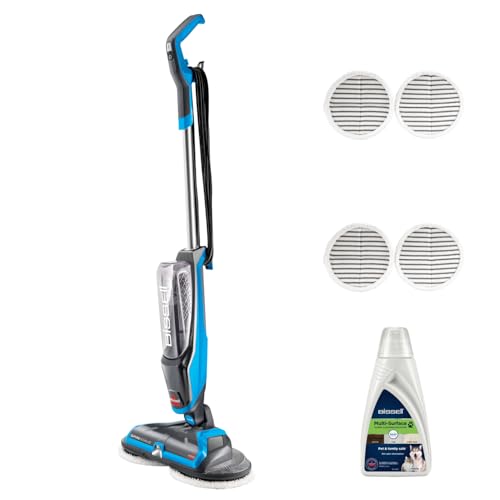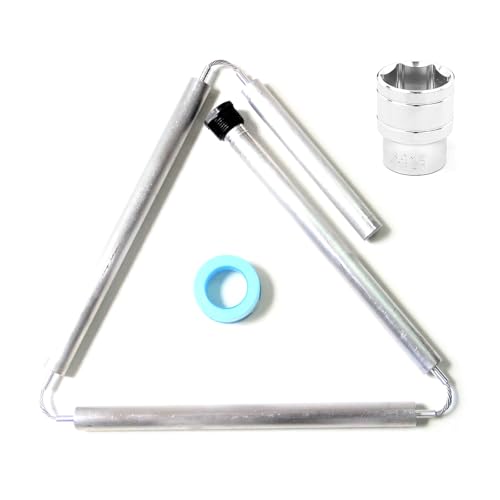




Having a broken hot water system can be a real inconvenience, especially when it comes to performing daily chores such as laundry. But what if you urgently need to do your laundry and your hot water is not working? Can you still use your washing machine?
The good news is that you can still use your washing machine even if your hot water is broken. Most washing machines have a cold water setting, which allows clothes to be washed without the need for hot water. However, there are a few things you should keep in mind when using cold water instead of hot.
Firstly, cold water may not be as effective in removing tough stains and dirt as hot water. Hot water tends to break down grease and grime more easily, while cold water may not have the same cleaning power. Therefore, it is advisable to pre-treat stains or use an appropriate stain remover before washing in cold water.
Additionally, cold water may not be as effective in killing bacteria and germs. Hot water is known for its ability to kill bacteria and sanitize clothes. If you are washing items that require extra disinfection, such as baby clothes or towels used for cleaning up after an illness, it is recommended to use hot water if possible. You can always wash them again in hot water once your hot water system is fixed.
In conclusion, while it is possible to use a washing machine without hot water, it may not provide the same level of cleanliness and sanitation as washing with hot water. If you can, it is best to wait until your hot water system is repaired or seek alternative options, such as using a laundromat or hand-washing with hot water if available. Remember to always check the label on your clothes for any specific washing instructions and adjust the settings on your washing machine accordingly.
Steps to Take When Your Hot Water Is Broken
1. Check the Water Heater
First, ensure that the issue is with your hot water supply and not the washing machine itself. Check the water heater to see if it is functioning properly. Look for any error codes or warning lights indicating a problem. If the water heater is not working, you may need to contact a professional plumber to assess and repair the issue.
2. Assess the Washing Machine Settings
While waiting for the water heater to be fixed, it’s worth checking the settings on your washing machine. Make sure that the washing machine is set to use only cold water. Some machines have specific settings for both hot and cold water, so ensure it is set to cold wash only to avoid any potential issues.
3. Use Cold Water Laundry Detergent
When washing clothes in cold water, it’s important to use a detergent specifically designed for cold water use. Using regular detergent meant for hot water can create excess suds and may not clean your clothes effectively. Make sure to follow the manufacturer’s instructions for proper dosage.
4. Adjust Washing Machine Load Size
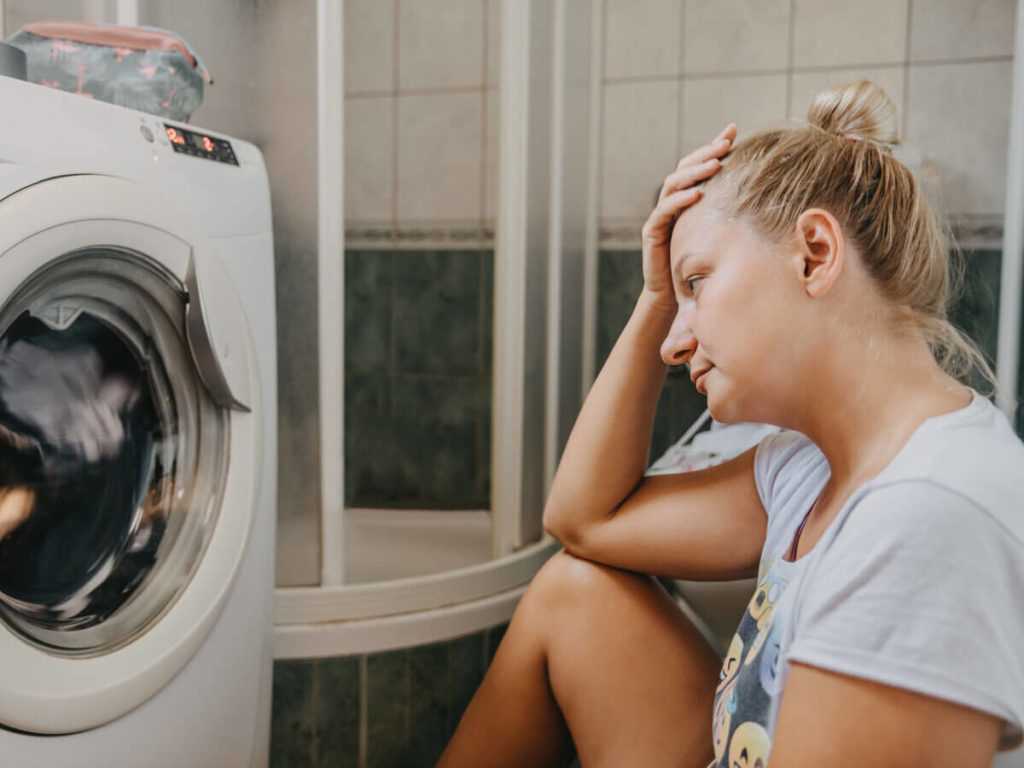
Since you won’t be using hot water, it’s a good idea to adjust the load size accordingly. Overloading the machine with too many clothes can lead to ineffective cleaning. Follow the manufacturer’s guidelines for load capacity to ensure optimal washing results.
5. Consider Alternative Washing Methods
If your hot water is expected to be out of service for an extended period, you may need to consider alternative washing methods. Options like hand washing clothes in a tub or utilizing a laundromat can help until your hot water is restored.
6. Contact a Professional
If the hot water issue persists after checking the water heater and adjusting the washing machine settings, it’s best to contact a professional plumber or washing machine technician. They can diagnose the problem and advise on the best course of action to get your hot water supply working again.
7. Consider Using a Temporary Fix
In some cases, a temporary fix or workaround may be possible to get hot water flowing again. This can include using a temporary water heater or utilizing another heat source to warm up the water before supplying it to the washing machine. However, be cautious when attempting these solutions and consult with a professional if needed.
8. Restore Hot Water Supply
Once the issue with the hot water supply is resolved, remember to adjust the washing machine settings back to normal. Also, check the water temperature to ensure it is at the desired level before starting a new wash cycle.
9. Consider Preventative Maintenance
To avoid future issues with your hot water supply, it’s a good idea to consider regular preventative maintenance. This can include flushing the water heater annually or scheduling routine inspections by a qualified professional. Taking these steps can help to identify and address potential problems before they cause a complete breakdown in your hot water supply.
Troubleshoot the Issue
If you find that your hot water is broken and you’re unable to use hot water in your washing machine, there are a few troubleshooting steps you can take to try and resolve the issue:
- Check the power supply: Ensure that your washing machine is properly connected to a power source and that the power supply is functioning correctly. Sometimes, a simple power issue can prevent the machine from heating the water.
- Inspect the heating element: The heating element in your washing machine is responsible for heating the water. If it’s faulty or damaged, it may need to be replaced. Check for any signs of damage or corrosion on the heating element.
- Examine the thermostat: The thermostat regulates the temperature of the water and ensures that it reaches the desired temperature. If the thermostat is malfunctioning, it may not be able to accurately heat the water. Test the thermostat or seek professional help to diagnose any issues.
- Check the water supply: Make sure that there is a proper supply of hot water to your washing machine. If the hot water valve is closed or there are issues with the water heater, it could be the reason for the lack of hot water.
- Consult a professional: If you’ve tried the above steps and are still unable to resolve the issue, it may be time to consult a professional plumber or appliance repair technician. They will have the expertise to diagnose and fix any underlying issues with your hot water supply or washing machine.
Remember, it’s important to prioritize safety when attempting any troubleshooting steps. If you’re unsure or uncomfortable with any aspect of the process, it’s best to contact a professional for assistance.
Contact a Professional Plumber
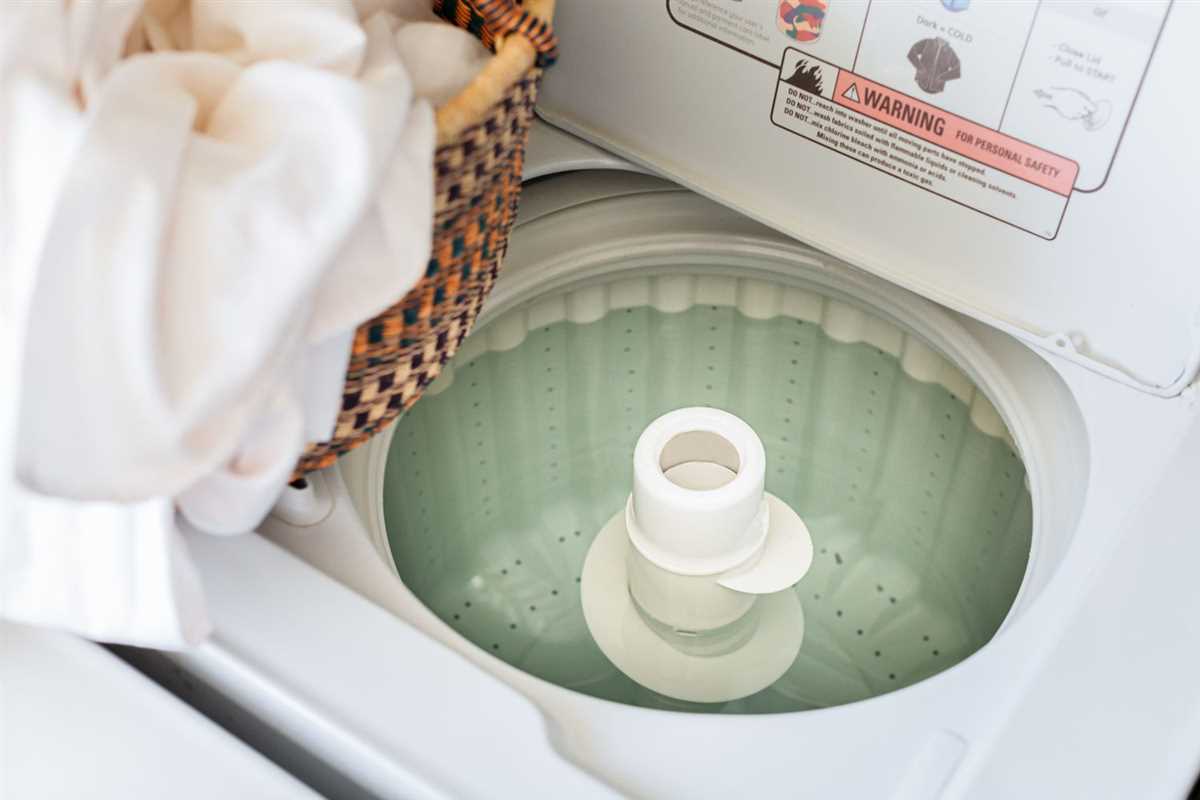
If you have tried the above troubleshooting steps and still cannot fix the issue with your hot water, it may be time to contact a professional plumber. A qualified plumber will have the expertise and tools necessary to diagnose and repair your hot water system.
When contacting a professional plumber, it is important to provide them with as much information as possible about the issue you are experiencing. This will help them to better understand the problem and come prepared with the necessary tools and equipment.
You can find a professional plumber by searching online directories or asking for recommendations from friends and family. It is advisable to choose a plumber who is licensed and insured, as this will ensure that they have the necessary qualifications and will be able to work safely and effectively.
Once you have selected a plumber, you can schedule a service call. During the service call, the plumber will inspect your hot water system, identify the issue, and provide you with a quote for the necessary repairs. If you agree to the quote, the plumber will then proceed with the repairs.
It is important to note that hiring a professional plumber can be more expensive than attempting to fix the issue yourself. However, it is often a worthwhile investment, as a qualified plumber will be able to quickly and effectively fix the problem, saving you time and potentially preventing further damage to your hot water system.
In conclusion, if you have tried troubleshooting steps and still cannot fix your broken hot water system, it is recommended to contact a professional plumber. They will have the expertise and tools necessary to diagnose and repair the issue, ensuring that your washing machine and other appliances can continue to function properly.
Consider Temporary Solutions
If your hot water is broken and you need to use your washing machine, there are a few temporary solutions you can consider:
- Use cold water: Most washing machines have a cold water cycle, so you can still use your machine to wash clothes using cold water. Keep in mind that some fabrics may not clean as effectively in cold water.
- Heat water separately: If you need warm water to wash your clothes, you can heat water separately using a kettle or stovetop. Once the water is heated, you can manually add it to your washing machine during the wash cycle. Be careful not to exceed the recommended water level for your machine.
- Consider a laundromat: If your hot water is broken for an extended period or you prefer to have access to hot water while doing laundry, you may want to consider using a laundromat. Laundromats usually have commercial-grade machines that provide hot water for washing.
- Repair or replace your water heater: If your hot water is consistently broken, it may be time to repair or replace your water heater. Contact a professional plumber to assess the issue and provide recommendations.
Remember to always follow the manufacturer’s instructions for your washing machine and exercise caution when using alternative methods to heat water. It’s also a good idea to check with your landlord or water utility provider if your hot water is not working properly in a rented property.
Modify Your Washing Machine Settings
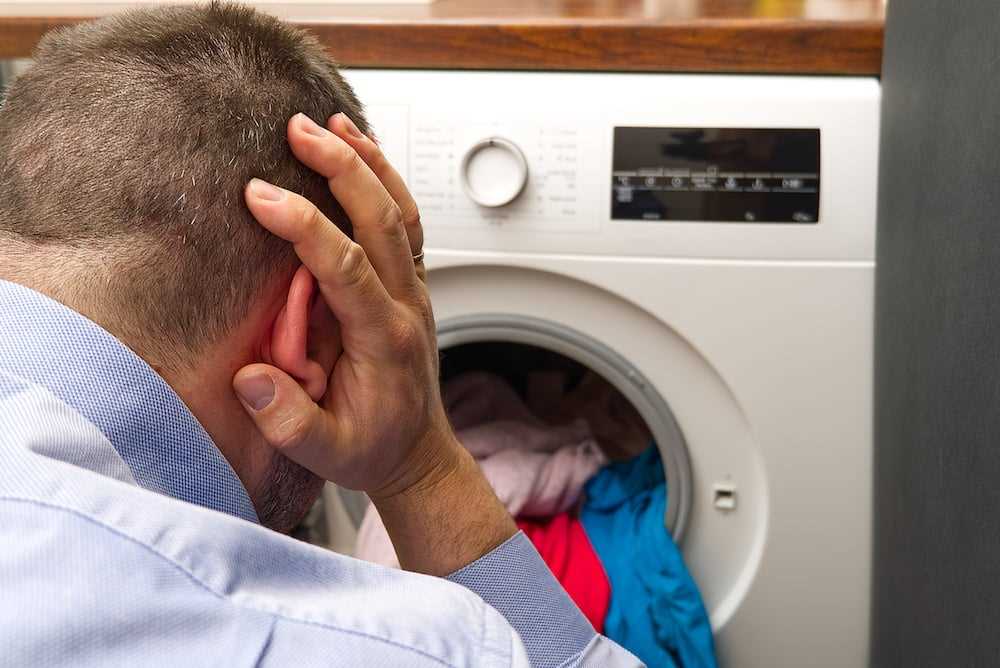
If your hot water is broken and you still need to use your washing machine, you may need to modify the settings to accommodate the lack of hot water. Here are a few tips on how to adjust your washing machine settings:
- Choose a lower temperature: Most washing machines offer temperature options such as hot, warm, and cold. Selecting a lower temperature, like warm or cold, can help conserve energy and still clean your clothes effectively.
- Use a shorter wash cycle: If your washing machine has an adjustable wash cycle, consider choosing a shorter duration. This can help minimize the time your clothes spend in the machine and reduce the energy needed to heat the water.
- Pre-soak your clothes: If you’re concerned about getting your clothes clean without hot water, pre-soaking them in a solution of detergent and cold water can help loosen dirt and stains before starting the wash cycle.
- Consider using a different detergent: Some detergents are formulated specifically for use in cold-water washes. These detergents are designed to be effective at lower temperatures, so switching to one of these options can help maintain cleaning performance.
- Use a laundry booster: If you’re worried about the cleanliness of your clothes without hot water, adding a laundry booster, such as baking soda or vinegar, can help enhance the cleaning power of your detergent in cooler temperatures.
Remember to always refer to your washing machine’s user manual for specific instructions on adjusting settings, as different machines may have different options and features.
Take Care of Your Washing Machine
Proper maintenance and care can help extend the lifespan of your washing machine and ensure it continues to function efficiently. Here are some tips to help you take care of your washing machine:
1. Clean the drum regularly
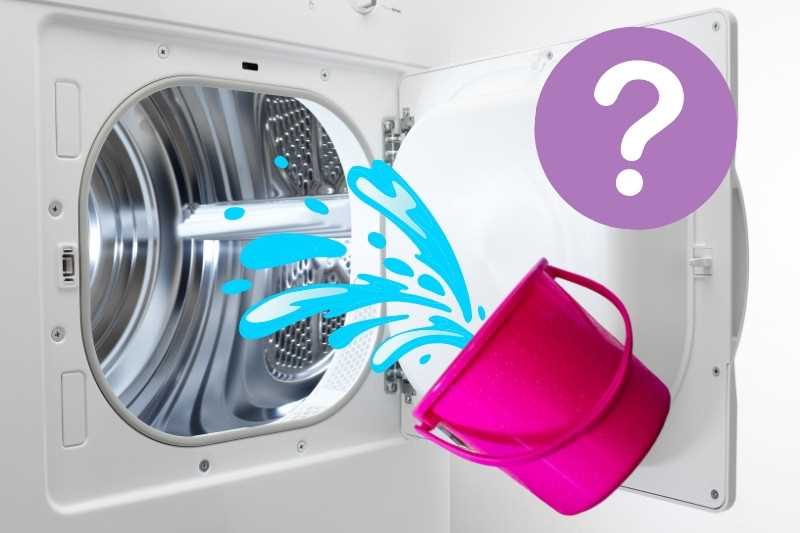
It’s important to clean the drum of your washing machine on a regular basis to remove any dirt, grime, or detergent residue. This can help prevent bad odors and keep your clothes smelling fresh. You can use a mixture of water and vinegar or a specialized washing machine cleaner for this task.
2. Check the hoses and connections
Inspect the hoses and connections of your washing machine periodically to ensure they are in good condition. Look for any signs of wear or leaks. If you notice any issues, replace the hoses or fix the connections as soon as possible to prevent water damage or flooding.
3. Do not overload the machine
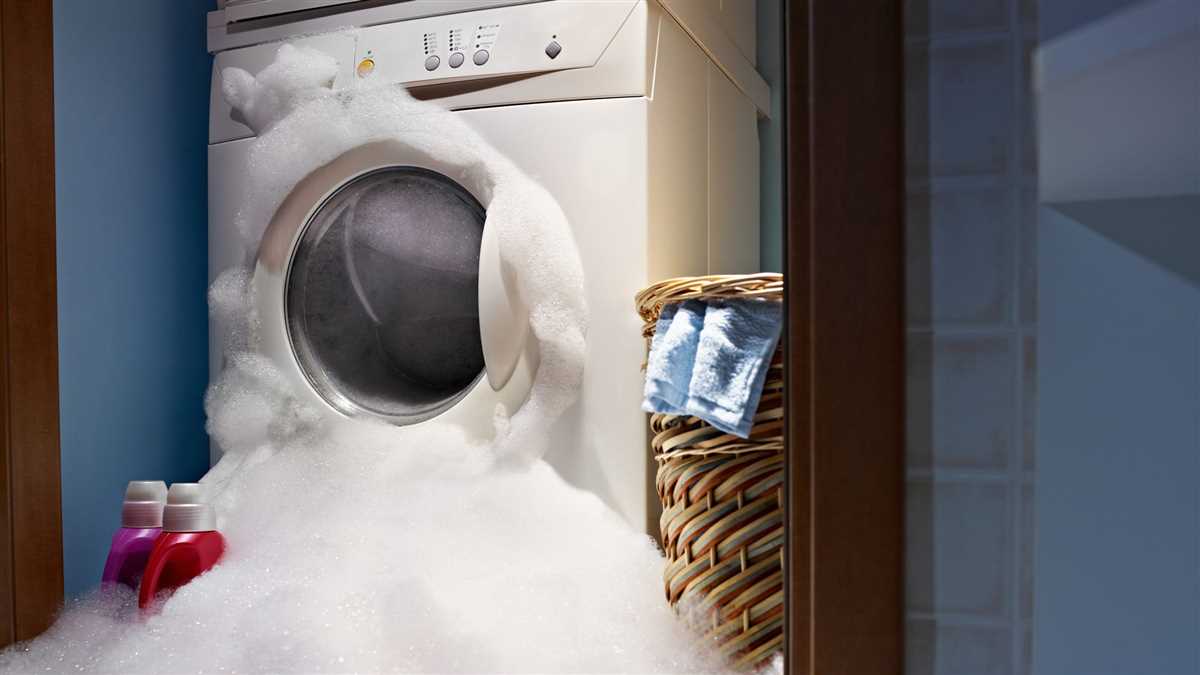
Avoid overloading your washing machine as it can strain the motor and reduce its efficiency. Follow the manufacturer’s guidelines for load capacity to ensure optimal performance. Overloading can also lead to unbalanced loads, which can cause excessive vibration and potential damage to the machine.
4. Use the right detergent
Using the correct type and amount of detergent is important for the proper functioning of your washing machine. Follow the detergent recommendations provided by the manufacturer and avoid using excessive amounts, as this can cause excess suds or clog the machine.
5. Regularly clean the dispensers and filters
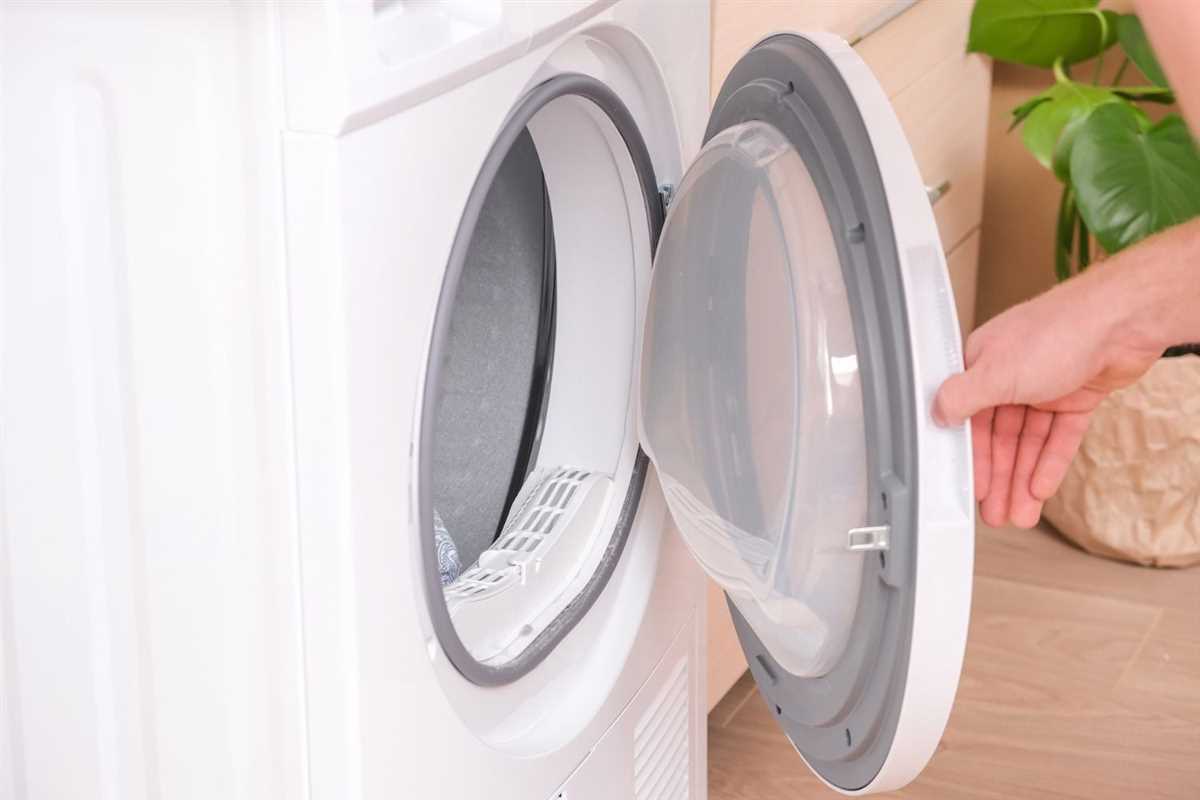
Check and clean the dispensers and filters of your washing machine regularly. These components can accumulate buildup over time, affecting the machine’s performance. Remove any residue or debris to ensure proper water flow and detergent distribution.
6. Keep the machine level
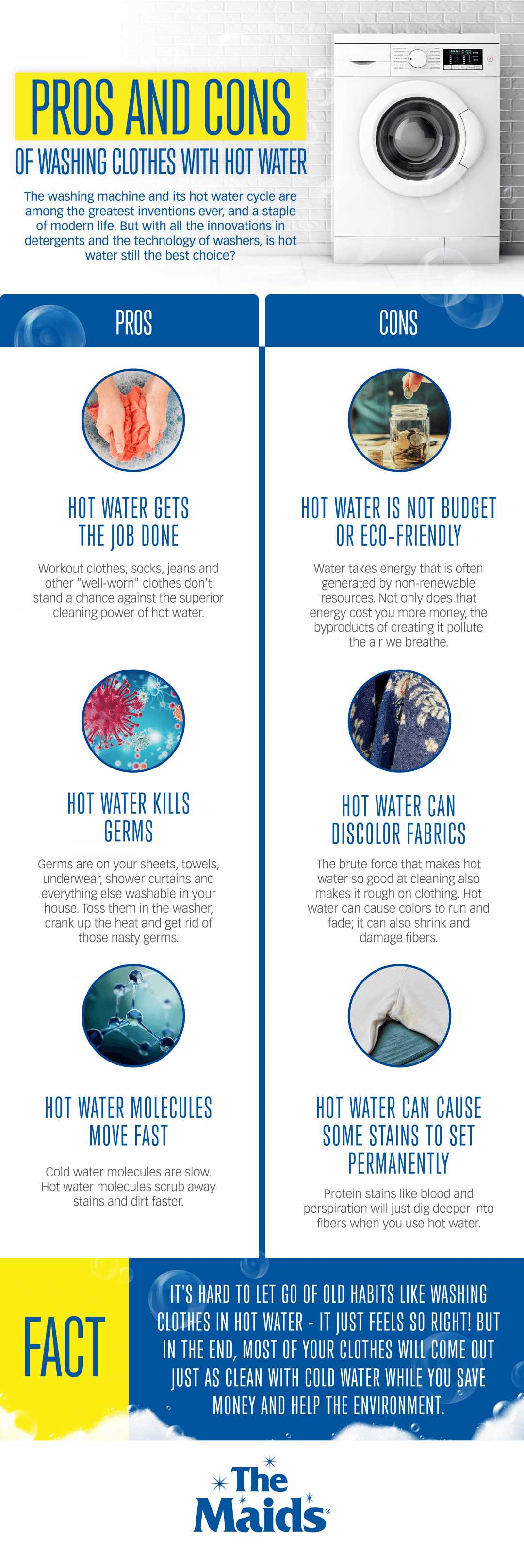
Ensure that your washing machine is properly leveled to prevent excessive vibrations and movement during the wash cycle. If the machine is not level, adjust the leveling feet to stabilize it. This can help prevent damage to the machine and ensure effective washing.
7. Schedule professional maintenance
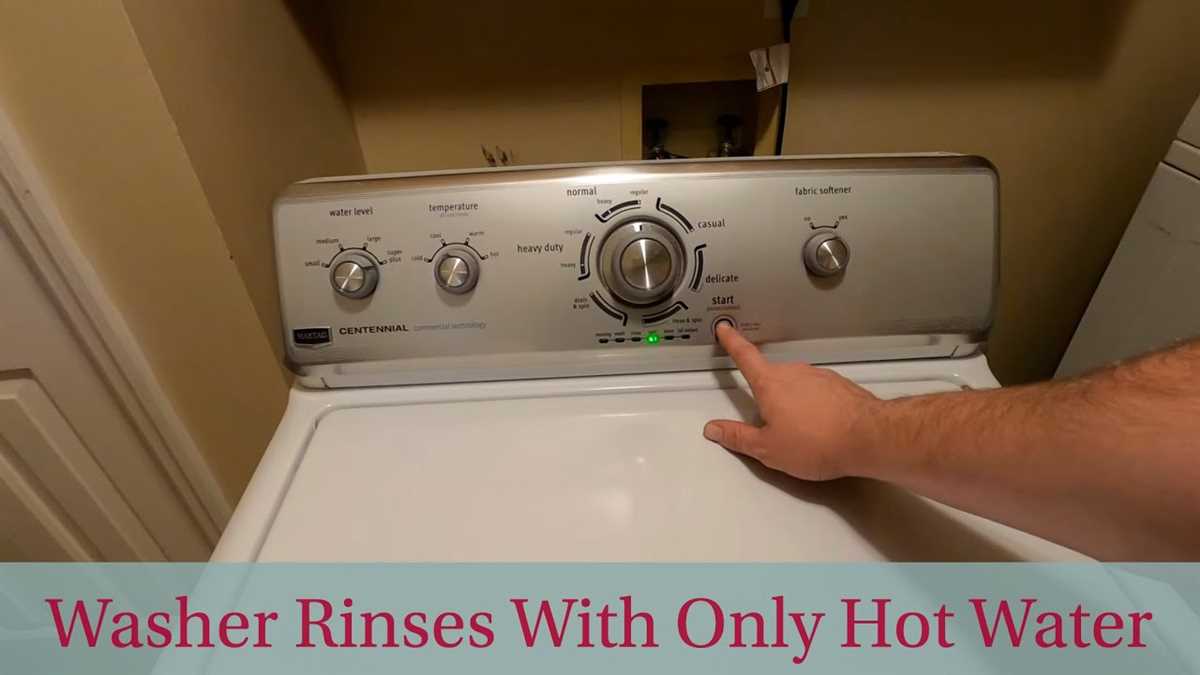
Consider scheduling regular maintenance with a professional to keep your washing machine in optimal condition. They can inspect and service the internal components, check for any potential issues, and provide necessary repairs or replacements. Regular maintenance can help prolong the life of your washing machine and prevent major breakdowns.
By following these tips and taking proper care of your washing machine, you can ensure its longevity and maintain its performance even when facing issues like a broken hot water supply.
FAQ
What should I do if I have a washing machine but no hot water?
If you have a washing machine but no hot water, there are a few things you can do. First, check if the hot water supply valve is open. If it is closed, open it and see if the hot water starts flowing. If the valve is open and you still don’t have hot water, there may be an issue with the heating element in your washing machine. In this case, you may need to call a professional to repair or replace the heating element.
Can I wash clothes in a washing machine without hot water?
Yes, you can wash clothes in a washing machine without hot water. Most washing machines have a cold water setting that you can use to wash your clothes. Cold water is just as effective in cleaning clothes and can also help to preserve the colors and fabric of your garments. However, keep in mind that certain stains or heavily soiled clothes may require hot water for effective cleaning. In such cases, you may want to pre-treat the stains or consider using a stain remover before washing.
Is it safe to use cold water for all types of fabrics in a washing machine?
Using cold water for most types of fabrics is safe and won’t cause any damage. In fact, washing clothes in cold water can help to preserve the colors and fabric of your garments, as hot water can sometimes cause fading or shrinking. However, there are some exceptions where hot water may be necessary, such as for heavily soiled clothes or items that require sanitization, like underwear or baby clothes. Always check the care label on your garments for any specific washing instructions.
What are the common reasons why there is no hot water in a washing machine?
There are several common reasons why there may be no hot water in a washing machine. It could be due to a closed hot water supply valve, a faulty heating element in the washing machine, a problem with the thermostat, or an issue with the electrical connections. It’s best to start by checking if the hot water supply valve is open and if the washing machine is receiving power. If these are not the issue, you may need to consult a professional to diagnose and repair the problem.
Can using only cold water in a washing machine impact the cleanliness of my clothes?
Using only cold water in a washing machine may not impact the cleanliness of your clothes significantly. Cold water can still effectively remove dirt and stains, especially when combined with a good detergent. However, hot water is generally more effective at killing bacteria and sanitizing clothes. If you’re concerned about germs or have heavily soiled items, you may want to consider pre-treating the stains or using a stain remover, and using the warm or hot water setting if it’s available.
What should I do if my washing machine doesn’t have hot water?
If your washing machine doesn’t have hot water, there are a few steps you can take to troubleshoot the issue. First, check if your hot water supply is working by turning on the hot water tap in your sink. If you don’t have hot water coming out of the tap, there may be a problem with your water heater or the hot water supply to your home. In this case, you should contact a professional plumber to inspect and repair the issue. If the hot water supply to your home is working, but your washing machine still doesn’t have hot water, there may be a problem with the water inlet valve or the temperature switch on your machine. You can try cleaning or replacing these parts yourself, or you can contact a professional appliance repair service for assistance.









